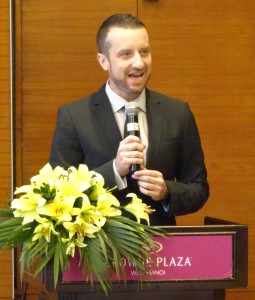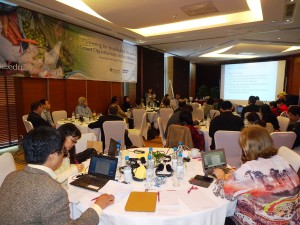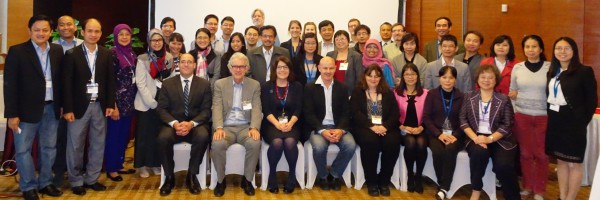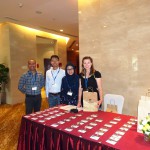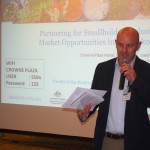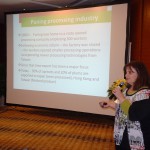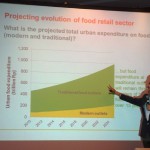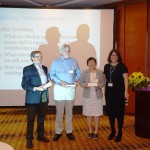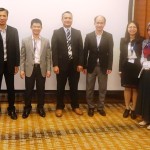Agrifood sector in Asia is changing.
Consumer preferences are changing. Agrifood retail sector is changing.
The question is how about smallholder producers?
How can best assist smallholders?
Our recent workshop “Partnering for Smallholder Inclusive Opportunities in the Mekong Region” in Hanoi attempted to address the above questions.
The workshop was held on 8-9th December 2015 in Hanoi, Vietnam and attended by more than 50 participants from 9 countries including Australia, the USA, Vietnam, China, Indonesia, Laos, Cambodia, the Philippines, Thailand, and Taiwan.
The workshop was a collaborative effort between two project teams, a new project “Developing Smallholder Inclusive Value Chain Models for Local and Global Markets” funded by the Australian Department of Agriculture as part of the Australian Government’s Economic Diplomacy Fund and “A strategic approach to pro-poor market and consumer research in China and the Mekong region” (AGB-2012-057) funded by the Australian Centre for International Agricultural Research (ACIAR).
The workshop invited experts presenting on topics such as changing consumer demand, development of food value chain models, international and regional trade in agriculture and food commodities. It was organised by Professor Wendy Umberger, Professor Christopher Findlay, Dr Suzie Newman and Dr Risti Permani. Several other GFS staff and researcher students also contributed to the workshop including Dr Dale Yi, Dr Lenka Malek, our PhD scholar Christian Genova and our Master of Global Food and Agricultural Business student Anh Duc Nguyen.
Day 1 of the workshop discussed horticultural market dynamics in the Mekong region and implications for smallholders. One of the issues being frequently mentioned is gaps in regional horticultural market data. It is evident that there is a need to develop a strategic, coordinated and collaborative approach to collection and analysis of regional horticultural market data.
Day 2 of the workshop was to understand and explore existing business practices between private sector and smallholders in agrifood sectors as part of the initial phase of the new project. Several country studies were presented. It is evident that more work needs to be done to understand and develop profitable inclusive business models. Our initial review of literature suggests that “no one size fits all”. Most successful business models are formed based on the local cultural contexts and the marketing needs of members that might differ between sectors/regions.
Between January and June 2016, a team of key researchers including Prof Nie Fengying (Agricultural Information Institute, Chinese Academy of Agricultural Sciences); Prof Ching-Cheng (Emily) Chang (National Taiwan University); Dr Nguyen Trung Kien (Director Division of Commodity Markets, Institute of Policy and Strategy for Agricultural and Rural Development); Dr Silinthone Sacklokham (Vice Dean, National University of Lao PDR); Dr Roehlano Briones (The Philippines Institute for Development Studies); Dr Arief Daryanto (Bogor Agricultural University, Indonesia) and Dr Sothea Oum (Ngee Ann-Adelaide Education Centre) will conduct country studies involving interviews with stakeholders to understand factors strengthening the development of smallholder-inclusive business models.
Results will be presented at the final workshop in June 2016. More information about the project is available from here.
- UA team
- Dr Rodd Dyer – ACIAR
- Networking
- Dr Suzie Newman presented one of the case studies
- Several speakers from Day 1
- Dr Nick Minot on food retail in Indonesia
- Several speakers from Day 1
- New project’s key researchers

